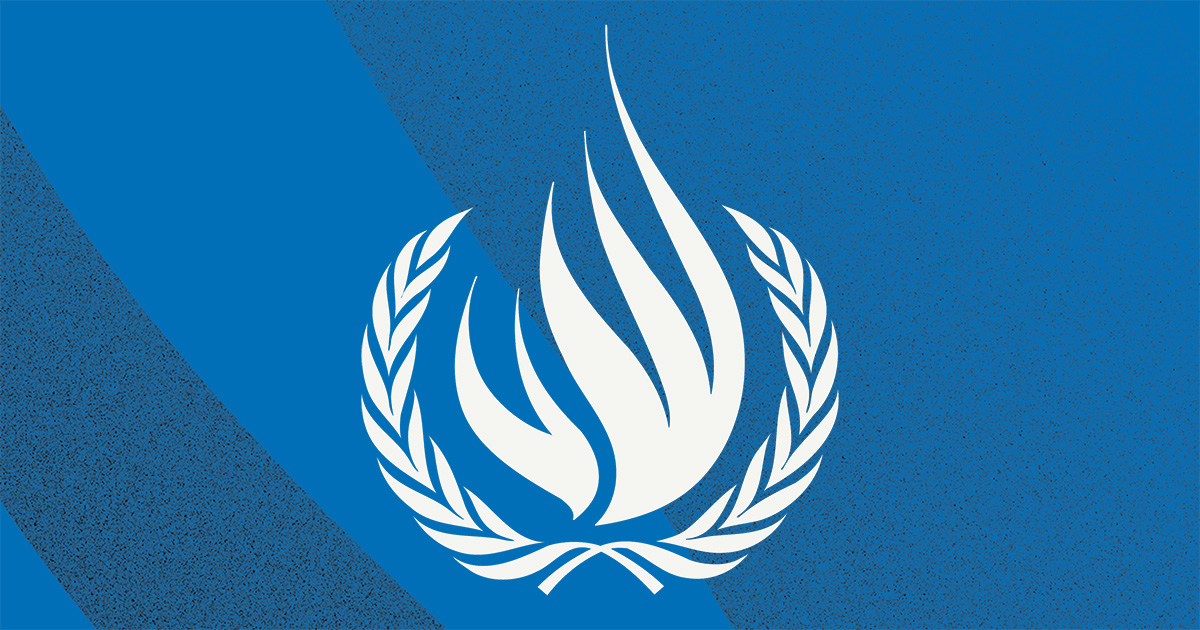
GENEVA (26 July 2022) – The rising levels of violence perpetrated by non-State armed groups and criminal organizations in rural areas of Colombia are having a devastating impact, particularly on women and children, indigenous peoples, Afro-descendants, community leaders and human rights defenders, a UN Human Rights Office report published today warns.
The report urges the incoming Government, which takes office next month, to prioritize tackling this violence. It sets out a series of recommendations for the authorities to implement urgently to protect the lives and human rights of those affected.
The signing of the peace accords with the Revolutionary Armed Forces of Colombia (FARC) in 2016 saw a dramatic fall in violence. According to the Institute of Development and Peace Studies (INDEPAZ), murders declined from 12,665 in 2012 to 1,238 in 2016. But over the past two years, non-State armed groups and criminal organizations, often involved in illicit activities such as drug-trafficking and illegal mining, have expanded their presence in various regions of Colombia.
The State’s predominantly military response has failed to stop the groups’ expansion, with the limited presence of civilian institutions exacerbating the situation, the report states. The lack of education and job opportunities has also increased the vulnerability of children and adolescents to being recruited by non-State armed groups.
In 2021, the UN Human Rights Office in Colombia verified the killing of 100 human rights defenders. Between 1 January and 30 June this year, the Office received information of 114 killings of human rights defenders, of which 22 cases have been verified so far.
Armed groups and criminal organisations have adopted a variety of tactics to gain control over communities, including by imposing rules and restrictions on people’s movement.
“We have to do what they tell us…There are checkpoints on the road where men with heavy weapons stop us, tell us we need to ask permission to leave and check our phones,” said a human rights defender in Arauca department.
In some cases, indigenous and Afro-descendant people have been coerced to participate in illicit activities, and to abandon their traditional ways of life, such as fishing and hunting. The groups’ violence destroys the social fabric of communities, endangering cultural identity and autonomy, the report flags. Communities and their leaders who try to protect their land, their lives, their culture and the environment face huge risks.
This is the case of the Nasa indigenous people in Cauca department, who have long been the target of threats and attacks. In the first few months of 2022, four Nasa leaders were killed. Violence, drug-trafficking and extractive industries are threatening their way of life and indeed survival, the report warns.
Similarly, the current situation could accelerate the disappearance of the Jiw indigenous people, who live along the banks of the River Guaviare and currently number some 2,261.
Rural reform and development programmes should be implemented and consolidated, with the participation of affected communities. The capacity of local governments, including those in Afro-descendant and indigenous communities, should be reinforced.
“It is the State’s duty to protect the population from violence, and to do so in a manner respecting international human rights law. This is why we are urging the Government to adopt public policies to efficiently respond to and prevent further violence, in compliance with Colombia’s obligations under international human rights law,” said UN High Commissioner for Human Rights Michelle Bachelet.
“The incoming Government´s focus on peace and the regional implementation of the peace agreement is a sound approach which my Office supports,” she added.
“Dialogue is essential to rebuild trust in the State and its institutions. I urge the authorities to hear the voices of all sectors of society. The people who live in rural and remote areas have suffered the most from this scourge of violence but are also best placed to help chart a path towards a more peaceful future,” Bachelet concluded.
Read the full report (in Spanish).
ENDS
For more information and media requests, please contact
Liz Throssell : + 41 22 917 9296 / elizabeth.throssell@un.org or
Jeremy Laurence + 41 22 917 9383 / jeremy.laurence@un.org









